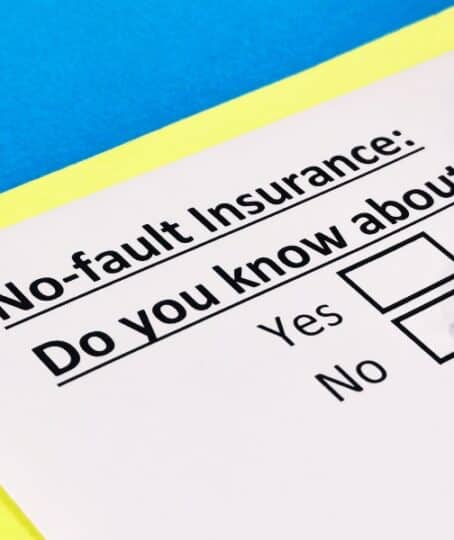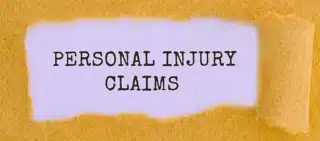
When a Dog Attacks Again and Again If dogs attack once, it’s alarming. When they attack five times, it’s no...


No-fault insurance covers your injuries and that of your passengers in case of a car accident, whether you caused the accident or not. After an accident, insurance companies and policies will likely be involved in one way or another. Most insurance policies are based on fault or no fault systems. Understanding the answer to the question, “What is no-fault insurance” and how this coverage workers may help you protect your rights and interests.

So, what is no fault insurance, and how does it work? No-fault insurance works in an opposite manner compared to traditional liability-based insurance. It is also known as a personal injury protection cover.
In fault-based systems, the person who caused the accident should take full responsibility, usually through their insurance providers. The victims file third-party claims that the insurance company can settle or deny. Furthermore, the injured bears the burden of proof.
The no-fault insurance laws make all parties pay for their damages. You file a compensation claim from your own insurance company instead of a third-party claim with the other driver’s insurance company. The other driver will also claim compensation from his or her insurer.
For example, suppose you rear-end another vehicle or someone backs into yours. Your no-fault insurance will pay medical bills for you and your passengers. Even if medical costs are covered out of pocket, the insurance company should reimburse you on claim approval. The other driver would be responsible for his or her own damages, even if you caused the crash.
This kind of policy is aimed at actualizing quick claim settlements, which reduces the number of drivers taking each other to court. Less money is wasted in pursuit of a fair settlement. The victims can also get the much-needed funds to cover their medical bills as soon as possible.
The best thing about this auto insurance is the reduced risk of claim denial. Even if you caused the accident, you would still receive compensation. Furthermore, the burden of proving to the insurance adjuster your lack of liability doesn't exist.
The no-fault insurance is only mandatory in a handful, probably a dozen states. Other states have a form of a hybrid system. For the rest of them, including Illinois, no-fault auto insurance is available as an add-on.
Generally, the personal injury insurance policy covers the following:
Your insurance provider will cover your medical costs and that of your passengers. These include ambulance services, prosthetic parts, surgery, rehabilitation, hospital fees, and dental costs.
You can also be compensated for costs incurred when hiring essential services during the recuperation period. Some of these services include grocery shopping, child care, and cleaning. This happens when the accident negatively impacts your ability to perform daily household tasks.
You need something to fall back on in case you lose your job due to the accident. Lost wages are also covered for the time lost during the recuperation period.
The insurer also pays for funeral expenses if the accident results in the policyholder's unfortunate death.
Please note that the damages you can claim from the no-fault system are limited compared to the traditional liability-based settlements. For instance, pain and suffering are not recoverable alongside other general damages.
Furthermore, the policy covers the damages up to certain limits. If you exceed the agreed limits, you pay for the extra costs out of pocket.
This type of car insurance will not pay for property damage. Property damage includes your vehicle and the other driver’s car. Here, property damage liability insurance is needed.
Property damage also includes collateral damage. For example, you might drive into someone's house or fence during an accident. The personal injury protection cover won't help compensate the victims for the damage.
Please note that PIP claims compensation is not always guaranteed. Fortunately, the option of taking the insurance company to court with the help of a car accident lawyer is still available.
Making a no-fault insurance claim is pretty similar to filing a regular third-party claim with the at-fault driver's insurance company. This is because you need to notify your insurer, fill out claim forms and follow other procedures. The only difference is that the possibility of the insurer denying the claim is greatly reduced.
If you are wondering what to do after a car accident, start by notifying the insurer through a written notice of when, where, and other vital information about the car crash. You should also include information on the number of injured persons and details on how the accident occurred. All that information is important in proving authenticity.
The insurer should receive the written notice in a period not exceeding one month from the date of occurrence. Suspicions and doubts can sometimes arise, so the notice should be served as early as possible. Exceeding thirty days may jeopardize your claim unless you submit reasonable justification through writing for late filing.
After submitting the written notice, you should receive a response from the insurer within five days. It is usually an Application for Benefits form and a letter explaining the coverage available, your rights, and your responsibilities. You can think of it as the offer letter an insurance adjuster sends for third-party insurance claims.
Complete the form and return it as soon as possible. The insurer should make a payment within a month if all goes well. However, the process may take longer if car insurance verification is needed.
There are two common ways the insurance compensates you after your claim goes through. One way is paying your healthcare provider. The other way is sending you the money to cover whatever you paid out of pocket and for lost earnings.
Please note that some states permit the no-fault insurance providers to split the medical bill with health insurance providers. Don’t be surprised when the auto insurance provider pays only a small fraction of your medical costs. To avoid such inconvenience, familiarize yourself with what is no-fault insurance and your state's auto insurance laws.

When a Dog Attacks Again and Again If dogs attack once, it’s alarming. When they attack five times, it’s no...

Overview of the Personal Injury Claim Process in Illinois No one expects to suffer an injury or get involved in...

Exploring Caps on Damages in Illinois Personal Injury Cases Illinois does not have laws capping damages in successful personal injury...